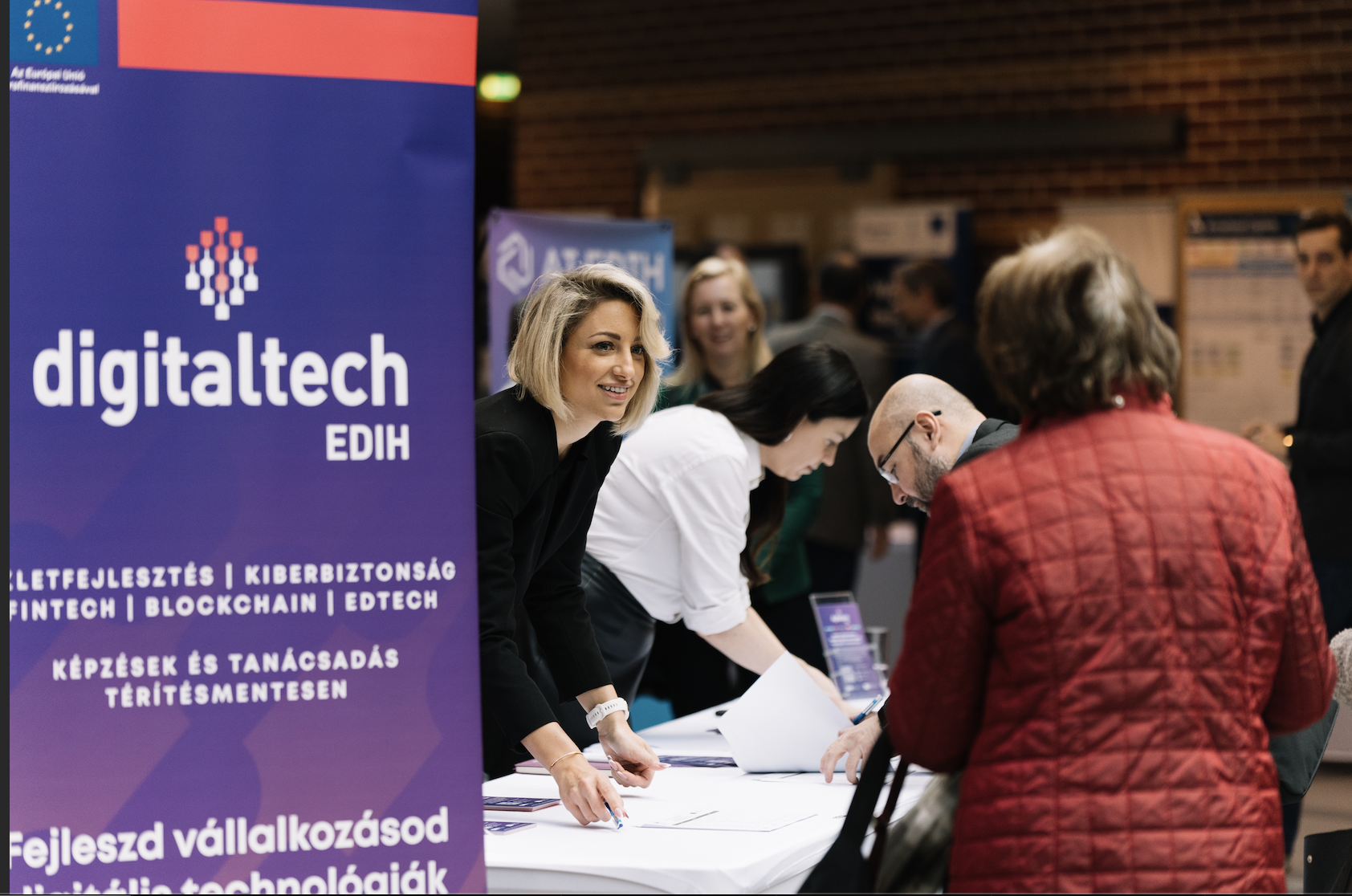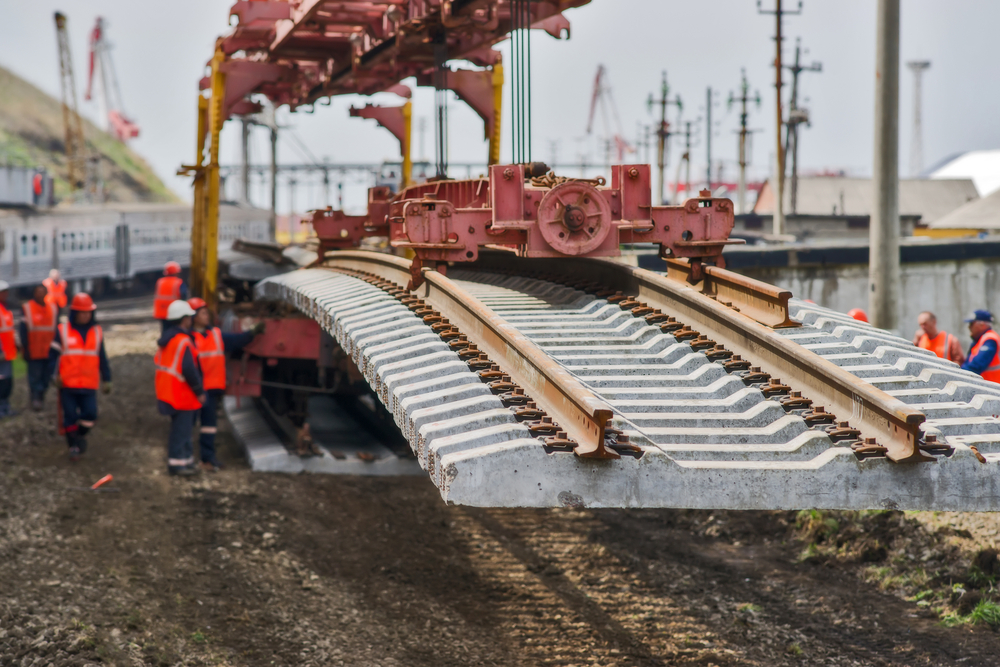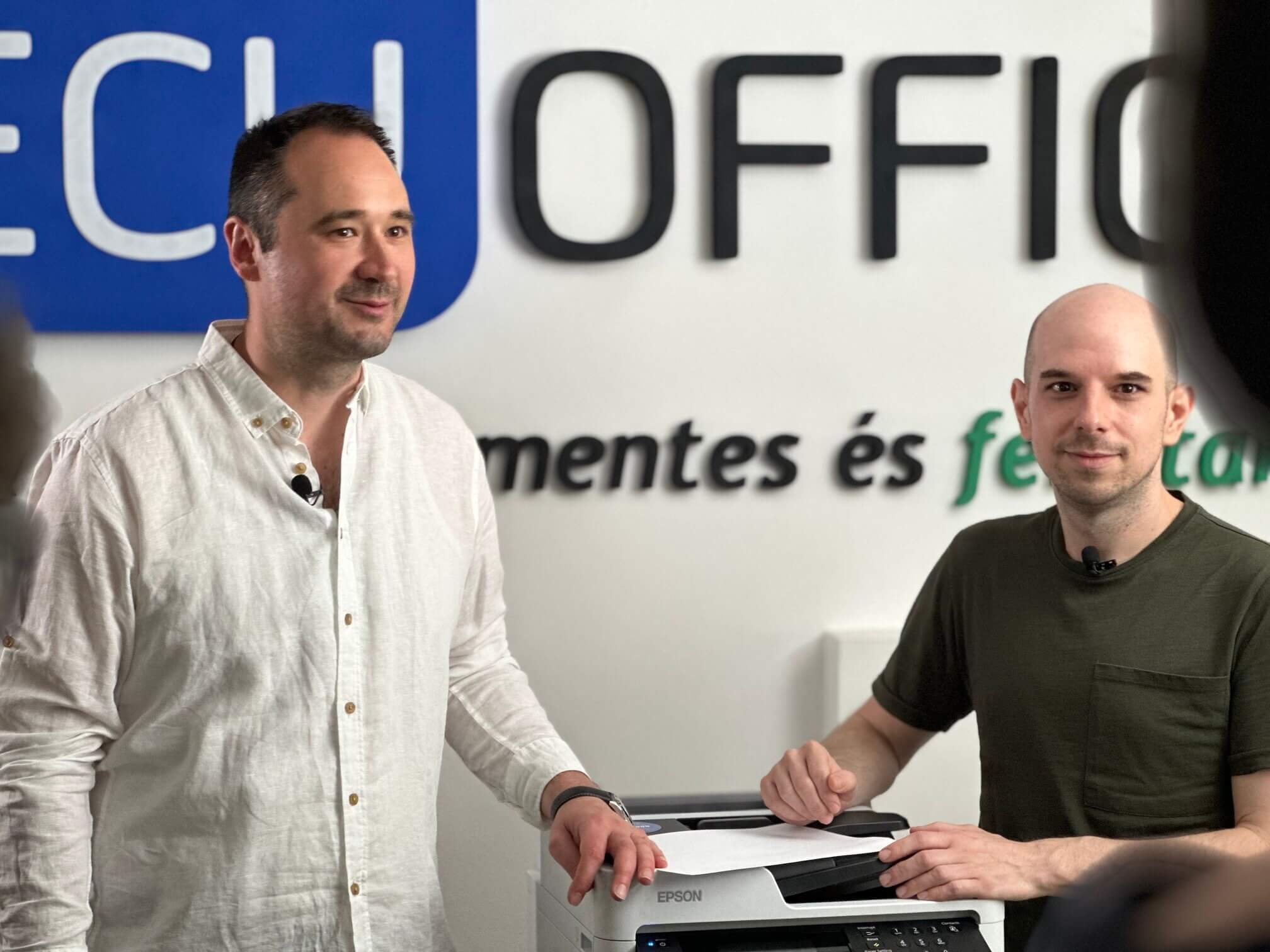Experts Assess Role of EDIH in the Hungarian Economy

Five EDIHs (European Digital Innovation Hubs), which provide free training and consultancy services to SMEs and public sector organizations, were presented at an ecosystem-building event on March 5 in Hungary. The event focused on the activities of EDIHs supporting the digital shift and their strategic importance in economic development.
Inflation, rising energy prices, and recent economic difficulties are forcing SMEs to increase their efficiency using digital technologies. Despite the gradual development of Hungarian SMEs, Hungarian firms remain behind the EU average in terms of digitalization.
Additionally, companies that fail to keep up with digital challenges can easily fall victim to various attacks due to the rise of cyber threats. In order to remain competitive and secure in the future, EU countries must collaborate to identify and manage digital risks.
These economic challenges have led to the development of the five EDIH in Hungary.
The Digitaltech EDIH, AI EDIH, HPC EDIH, Data EDIH, and AEDIH support Hungarian businesses in different sectors and in different challenges free of charge.
By providing pre-deployment testing of technologies, consultancy, skills development and training, identification of funding sources, capital raising opportunities, and ecosystem as well as networking between relevant actors, they support the digitalization of businesses.
More than 150 participants attended the event on March 5. The program started with a welcome speech by Charaf Hassan, dean of the Faculty of Electrical Engineering and Information Technology at the Budapest University of Technology and Economics, and Szabolcs Szolnoki, deputy state secretary for Technology at the Ministry of National Economy.
"Hungary's goal is to utilize 2.2% of the Digital Europe program's resources. [...] Therefore, we consider EDIH organizations to be extremely useful and support them. The use cases and adaptation programs are very important to us and we would like to continue supporting them," he said.
After the opening ceremony, Katalin Kovács-Toperczer, Lead Economic Expert at the European Commission Representation in Hungary, presented the EDIH network and its role in the digital transformation of the SME sector. Ferenc Vágujhelyi, Minister of State for the Management of the National Tax and Customs Administration of Hungary (NTCA) gave a presentation on the synergies of innovative technologies. Zoltán Horváth, director of the Institute of Eötvös Loránd University, spoke about the role of the EDIH network in the economic ecosystem.
The event was closed by a round table discussion, where the participants, Viktor Vajda, deputy chief operating officer of the Neumann Technology Platform; Ferenc Kott, president of the Information Technology Division at the Hungarian Chamber of Commerce and Industry, Róbert Pintér, assistant professor at the Corvinus University of Budapest and head of research at Digiméter, and Endre Spaller, president of the Governmental Agency for IT Development, discussed methods and opportunities for digital improvements in the SME sector.
Vajda said that SMEs have already recognized the value of data. However, how to use data assets effectively to increase competitiveness is still a question.
According to Kott, the key to progress in digitalization is a change of mindset. For companies to keep pace with the changing technological environment, it is essential to evolve in attitude.
Pintér pointed out that there is no single way to introduce digitalization in businesses. He said it is a sector- and company-specific process that requires a tailored approach.
Spaller highlighted the importance of culture building in promoting digitalization. He also believes that building the right infrastructure is crucial for successful digitalization processes.
The event as a whole, and the "networking" that followed, provided an excellent opportunity for participants to learn about the activities of EDIHs.
SUPPORT THE BUDAPEST BUSINESS JOURNAL
Producing journalism that is worthy of the name is a costly business. For 27 years, the publishers, editors and reporters of the Budapest Business Journal have striven to bring you business news that works, information that you can trust, that is factual, accurate and presented without fear or favor.
Newspaper organizations across the globe have struggled to find a business model that allows them to continue to excel, without compromising their ability to perform. Most recently, some have experimented with the idea of involving their most important stakeholders, their readers.
We would like to offer that same opportunity to our readers. We would like to invite you to help us deliver the quality business journalism you require. Hit our Support the BBJ button and you can choose the how much and how often you send us your contributions.


.png)







.png)
